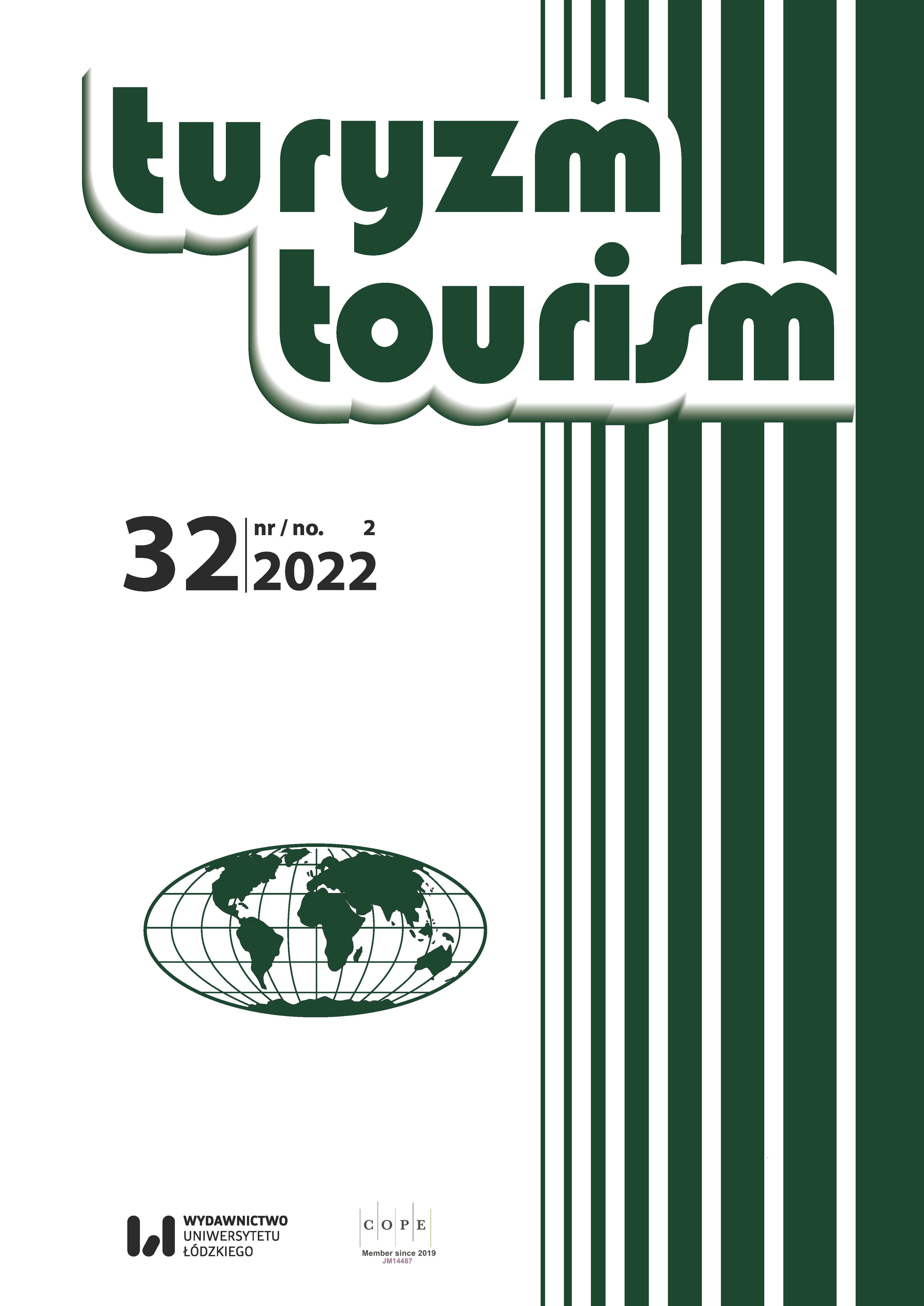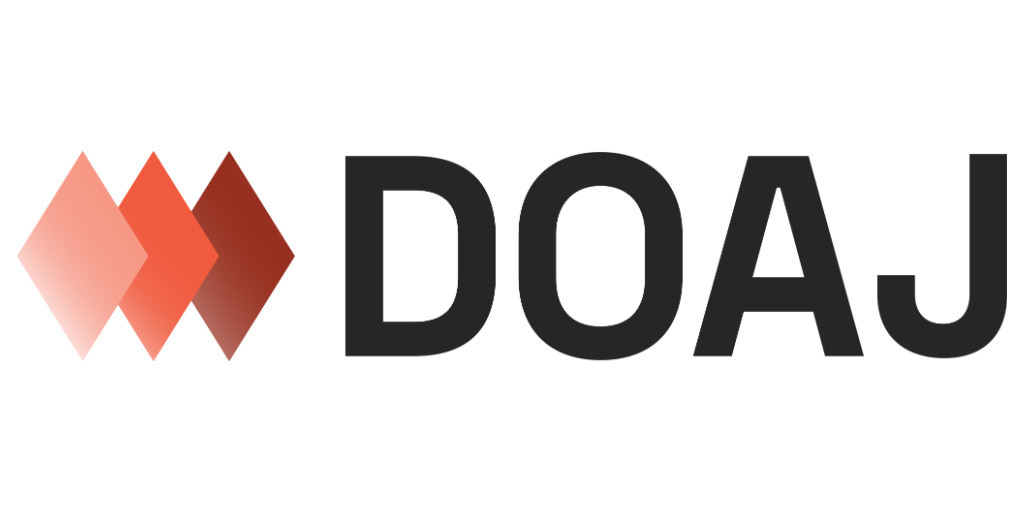The development of creative tourism in Ukraine and globally during the COVID-19 pandemic
DOI:
https://doi.org/10.18778/0867-5856.32.2.08Keywords:
creative industries, creative tourism, COVID-19 pandemic, tourist destination, tourist servicesAbstract
The article identifies the challenges to the creative industries in tourism as an important phenomenon in the conditions of the urgent global issue of COVID-19. The concepts of “creative industries”, “creative tourism”, and signs of creative tourism (economic, social and ecological sustainability) have been specified. An analysis has been made, and the issues and opportunities for introducing creative industries into tourism have been determined. It is emphasized that creative tourism, as a self-sufficient product, easily changes format and subject matter depending on the objectives set, while remaining creative in its nature and purpose. The main opportunities for the development of tourist services and creative tourism priority areas have been outlined. Recommendations for introducing creative technologies by relevant government institutions and tourism enterprises have been suggested.
Downloads
References
Bakhmat, N.V., Dudka, T.Y., Liubarets, V.V. (2018). Multimedia education technologies usage as the condition for quality training of the managers of socio-cultural activity. Information Technologies and Learning Tools, 64 (2), 98–109. https://doi.org/10.33407/itlt.v64i2.2027
Google Scholar
DOI: https://doi.org/10.33407/itlt.v64i2.2027
Bozhko, L.D. (2021). Creative tourism: Post-classical variation of cultural tourism. In: Internet-Seminar “Leisure and Tourism in the Post-Classical Perspective” (pp. 3–7). Poltava: PUET.
Google Scholar
Department for Digital, Culture, Media and Sport (2019). DCMS Sector Economic Estimates Methodology. Retrieved from: https://assets.publishing.service.gov.uk/government/uploads/system/uploads/attachment_data/file/829114/DCMS_Sectors_Economic_Estimates_-_Methodology.pdf (5.04.2022).
Google Scholar
Dubru, N. (2009). Creative tourism: A look at its origins, its definitions, and the creative tourism movement. In: R. Wurzburguer, T. Aageson, A. Pattakos, S. Pratt (eds), A global conversation. How to provide unique creative experiences for travelers worldwide (pp. 229–237). Santa Fe: Sunstone Press.
Google Scholar
Hawkins, J. (2011). Kreativnaya ekonomika. Kak prevratit idei v dengi [Creative economy: How to turn ideas into money]. Moscov: Izdatel’skij dom Klassika-XXI” [in Russian].
Google Scholar
Ivashchenko, A., Britchenko, I., Dyba, M., Polishchuk, Y., Sybirianska, Y., Vasylyshen, Y. (2018). Fintech platforms in SME’s financing: EU experience and ways of their application in Ukraine. Investment Management and Financial Innovations, 15 (3), 83–96. https://doi.org/10.21511/imfi.15(3).2018.07
Google Scholar
DOI: https://doi.org/10.21511/imfi.15(3).2018.07
Kabinet ministriv Ukrainy (2016). Rozporiadzhennia vid 1 lyutoho 2016 r. № 119-r Kyiv Pro skhvalennia Dovhostrokovoi stratehii rozvytku ukrainskoi kultury – stratehii reform [Order No. 119-r “Long-term strategy for the development of Ukrainian culture – a reform strategy”]. Retrieved from: https://zakon.rada.gov.ua/laws/show/119-2016-%D1%80#Text (5.04.2022) [in Ukrainian].
Google Scholar
Kabinet ministriv Ukrainy (2017). Rozporiadzhennia vid 16 bereznia 2017 r. №168-r Kyiv Pro skhvalennia Stratehii rozvytku turyzmu ta kurortiv na period do 2026 roku [Order No. 168-r “Strategy for the development of tourism and resorts for the period up to 2026”]. Retrieved from: https://zakon.rada.gov.ua/laws/show/168-2017-р#Text (5.04.2022) [in Ukrainian].
Google Scholar
Kabinet ministriv Ukrainy (2019). Rozporiadzhennia vid 24 kvitnia 2019 r. № 265-r Kyiv Pro zatverdzhennia vydiv ekonomichnoi diialnosti, yaki nalezhat do kreatyvnykh industrii [Order No. 265-r “On approval of types of economic activities that belong to the creative industries”]. Retrieved from: https://zakon.rada.gov.ua/laws/show/265-2019-%D1%80#Text (5.04.2022) [in Ukrainian].
Google Scholar
Korzh, N.V., Basyuk, D.I. (2017). Upravlinnia turystychnymy destynatsiiamy: pidruchnyk [Management of tourist destinations: A textbook]. Vinnytsia: “PP “TD Edel’veys i K” [in Ukrainian].
Google Scholar
Kozlovskyi, S., Butyrskyi, A., Poliakov, B., Bobkova, A., Lavrov, R., Ivanyuta, N. (2019). Management and comprehensive assessment of the probability of bankruptcy of Ukrainian enterprises based on the methods of fuzzy sets theory. Problems and Perspectives in Management, 17 (3), 370–381. https://doi.org/10.21511/ppm.17(3).2019.30
Google Scholar
DOI: https://doi.org/10.21511/ppm.17(3).2019.30
Kuzheliev, M., Britchenko, I. (2016). Theoretical and methodological aspects of formation of corporate control system in Ukraine. Ikonomicheski Izsledvania / Economic Studies, 25 (2), 3–28.
Google Scholar
Levchenko, I., Britchenko, I. (2021). Estimation of state financial support for non-priority territorial units using the example of bridge construction. Eastern-European Journal of Enterprise Technologies, 1 (13), 26–34. https://doi.org/10.15587/1729-4061.2021.225524
Google Scholar
DOI: https://doi.org/10.15587/1729-4061.2021.225524
Liubarets, V., Bakhmat, N., Kurylo, L., Spitsyna, A., Biriukova, O. (2022). Formation of transversal competences of future economists in the conditions of digital space. Journal of Higher Education Theory and Practice, 22 (14), 67–80.
Google Scholar
Liubarets, V., Levadna, K., Tsypko, V., Rodinova, N. (2021). Hospitality ethics – the main image criterion of the tourism industry managers / Ética em hospitalidade – o principal critério de imagem dos gestores da indústria do turismo. Retrieved from: http://geplat.com/rtep/index.php/tourism/article/view/947/923 (20.03.2022).
Google Scholar
Nikitenko, E.K. (2019). Tourism as a factor of personality creativity and the driving force of the creative economy. Proceedings of the XXIV Scientific and Technical Conference of Students, Undergraduates, Graduate Students, Young Scientists and Teachers. Problems of Economic Development in Modern Conditions, 4, 56–57.
Google Scholar
Ovcharenko, M.O., Tavolzhanskyi, O.V., Radchenko, T.M., Kulyk, K.D., Smetanina, N.V. (2020). Combating illegal drugs trafficking using the Internet by means of the profiling method. Journal of Advanced Research in Law and Economics, 11 (4), 1296–1304. https://doi.org/10.14505//jarle.v11.4(50).26
Google Scholar
DOI: https://doi.org/10.14505//jarle.v11.4(50).26
Prezydent Ukrainy (2020). Ukaz Prezydenta Ukrainy Kyiv № 329/2020 “Pro zakhody shchodo pidtrymky sfery kultury, okhorony kulturnoi spadshchyny, rozvytku kreatyvnykh industrii ta turyzmu” [Decree No. 329/2020 “On measures to support the sphere of culture, protection of cultural heritage, development of creative industries and tourism”]. Retrieved from: https://zakon.rada.gov.ua/laws/show/329/2020 (1.04.2022) [in Ukrainian].
Google Scholar
Prezydent Ukrainy (2021). Ukaz Prezydenta Ukrainy Kyiv № 153/2021 “Pro zakhody shchodo pidtrymky sfery kultury, okhorony kulturnoi spadshchyny, rozvytku kreatyvnykh industrii ta turyzmu” [Decree No. 153/2021 “On measures to support the sphere of culture, protection of cultural heritage, development of creative industries and tourism”]. Retrieved from: https://zakon.rada.gov.ua/laws/show/329/2020#Text (1.04.2022) [in Ukrainian].
Google Scholar
Richards, G., Raymond, C. (2000). Creative tourism. ATLAS News, 23 (8), 16–20.
Google Scholar
Smith, M. (2016). Issues in cultural tourism studies. New York: Routledge.
Google Scholar
DOI: https://doi.org/10.4324/9781315767697
THC (2021). Turyzm, spadshchyna ta kreatyvnist (THC). Nomer proektu BSB1130. Zvit pro provedenu inventaryzatsiiu resursiv (aktyviv) spadshchyny dlia rozvytku kreatyvnoho turyzmu ta produktiv kultury [Tourism, Heritage and Creativity (THC): Project number BSB1130: Report on the inventory of heritage resources (assets) for the development of creative tourism and cultural products]. Retrieved from: http://www.frgn.mk.ua/wp-content/uploads/2021/03/zvitInve.pdf (20.03.2022) [in Ukrainian].
Google Scholar
Throsby, D. (2021). Economics and culture. Cambridge: Cambridge University Press.
Google Scholar
UNESCO (2003). Text of the Convention for the Safeguarding of the Intangible Cultural Heritage. Retrieved from: https://ich.unesco.org/en/convention (20.03.2022).
Google Scholar
UNESCO (2006). Towards sustainable strategies for creative tourism: Discussion report of the planning meeting for 2008 International Conference on Creative Tourism. Retrieved from: https://unesdoc.unesco.org/ark:/48223/pf0000159811 (3.03.2022).
Google Scholar
UNWTO (2017). Report of the Secretary General Part II: Programme of Work (a) Implementation of the General Programme of Work for 2016–2017. Retrieved from: https://webunwto.s3-eu-west-1.amazonaws.com/imported_images/47210/ce105_decisions_en.pdf (1.03.2022).
Google Scholar
Verkhovna Rada Ukrainy (2011). Zakon Ukrainy Dokument № 2778-VI “Pro kulturu” [Law of Ukraine No. 2778-VI “On Culture”]. Retrieved from: https://zakon.rada.gov.ua/laws/show/2778-17#Text (15.03.2022) [in Ukrainian].
Google Scholar
World Tourism Organization (2018). Tourism and Culture Synergies. Madrid: UNWTO. https://doi.org/10.18111/9789284418978
Google Scholar
DOI: https://doi.org/10.18111/9789284418978
Downloads
Published
How to Cite
Issue
Section
License

This work is licensed under a Creative Commons Attribution-NonCommercial-NoDerivatives 4.0 International License.










